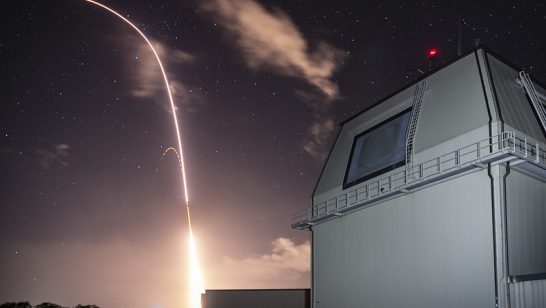The UK and Russia hold pivotal roles within the Non-Proliferation Treaty regime and share a common interest in its preservation and longevity. This report offers a set of recommendations on how the UK and Russia could display leadership, create opportunities, and positively shape the 2020 Review Conference and advance the NPT agenda beyond RevCon.
The recommendations in this report are the result of the European Leadership Network (ELN) led project Can Moscow and London Find a Way Forward on the Non-Proliferation Treaty (NPT)? The project began in July 2019 and will run up until March 2020 under a grant from the UK Foreign and Commonwealth Office’s British Embassy in Moscow.
The project brought together governmental officials, retired career diplomats, former military officials, and expert representatives of think tanks and academia from the UK and Russia. The first track 2.0 workshop held in cooperation with the Centre for Energy and Security Studies (CENESS) in Vienna in September 2019 addressed promising areas of bilateral cooperation and coordination that Moscow and London could adopt and advance in the run to the NPT 2020 Review Conference. The second track 1.5 workshop held in partnership with the Russian International Affairs Council (RIAC) in Moscow in November 2019 attempted to translate promising recommendations into detailed, actionable policy recommendations the UK and Russia could adopt.
Participants acknowledged that despite the limited dialogue between governments, and the little time remaining until the 2020 NPT Review Conference, both sides should explore possible avenues in good faith. Attendees differed on whether the UK and Russia should focus on steps “achievable” in the run-up to the 2020 conference or long-term goals beyond the 2020 horizon that could substantially contribute to the disarmament and non-proliferation agenda.
While both workshops identified a significant number of steps that London and Moscow could take to push the NPT agenda forward, a silver bullet recommendation does not exist. This report reflects on ideas that featured most prominently within the project discussions.
The report offers several recommendations under each of the three pillars of the Treaty: non-proliferation, disarmament and the peaceful use of nuclear energy. These include supporting the establishment of the Middle East Weapons of Mass Destruction Free Zone (MEWMDFZ), universalising the Comprehensive Nuclear-Test-Ban Treaty (CTBT), providing ideas for a set of new nuclear risk reduction measures, and answering challenges related to the peaceful use of nuclear energy.
While participants have enriched the debate and helped to refine ideas, the ELN is the sole author of the report and participants do not bear any responsibility for it.
Workshop participants included:
- BATSANOV Sergey, Director (Geneva Office) and Member of the Board, Pugwash Conferences on Science and World Affairs; Former Soviet Union and Russian Federation Ambassador to the Conference on Disarmament in Geneva (1989–1993)
- BELOBROV Yury, Leading Research Associate, Center for Euro-Atlantic Studies and International Security, Institute of Contemporary International Studies, Diplomatic Academy, Ministry of Foreign Affairs
- BERDENNIKOV Grigory, Ambassador; Permanent Representative of the Russian Federation to the International Organizations in Vienna (2001–2007) and the Conference on Disarmament in Geneva (1993–1998); Deputy Minister of Foreign Affairs (1992–1993; 1999–2001)
- DOBBS Joseph, Policy Analyst to the International Relations and Defence Committee Committee Office, House of Lords
- INGRAM Paul, Senior Fellow, British American Security Information Council (BASIC)
- JOHNSON Rebecca, Executive Director, Acronym Institute for Disarmament Diplomacy
- KHLOPKOV Anton, Director, Center for Energy and Security Studies (CENESS)
- KONUKHOV Dmitry, Senior Research Associate, Center for Energy and Security Studies (CENESS); Director, the 2019 Moscow Nonproliferation Conference
- KUBIAK Katarzyna, Policy Fellow, European Leadership Network (ELN)
- KUCHINOV Vladimir, Associate Professor, Department of International Relations, National Research Nuclear University ‘MEPhI’; Former Advisor to the Director-General, State Atomic Energy Corporation ROSATOM
- LEWIS Patricia, Research Director, International Security, Chatham House
- MCKANE Tom, Distinguished Fellow, Royal United Services Institute (RUSI); Former Director General for Strategy and Director General for Security Policy, United Kingdom Ministry of Defence
- NUTTALL William, Professor of Energy, Open University
- ROMASHKINA Natalia, Head of the Informational Security Problems Department of the Primakov National Research Institute of World Economy and International Relations (IMEMO) of the Russian Academy of Sciences, Corresponding Member of the Russian Academy of Military Sciences (AMS), Russian International Affairs Council (RIAC)
- SELEZNEVA Daria, Research Associate, Primakov National Research Institute for World Economy and International Relations (IMEMO), Russian Academy of Sciences
- SHAH Sahil, Policy Fellow, European Leadership Network (ELN)
- SHAVROVA Anastasia, Research Associate, Center for Energy and Security Studies(CENESS)
- SHETTY Shatabisha, Co-Founder and Deputy Director, European Leadership Network (ELN)
- SOKOVA Elena, Executive Director, Vienna Center for Disarmament and Non-Proliferation (VCDNP)
- STEFANOVICH Dmitry, Expert, Russian International Affairs Council (RIAC)
- STEPANOV Alexei, Research Fellow, Institute of US and Canadian Studies RAS
- TROITSKIY Mikhail, Dean, School of Government and International Affairs, Moscow State Institute of International Relations (MGIMO)
- UNAL Beyza, Senior Research Fellow, Chatham House
- WILLIAMS Isabelle, Senior Advisor, Nuclear Threat Initiative (NTI)
Beyond the seminars, the ELN held private consultations with experts and officials in London, Geneva, Vienna and Moscow to ground its recommendations in political, technical and industrial reality. We are especially grateful to Adlan Margoev and the World Nuclear Association for advise.
Download the Report here (English)
Download the Report here (Russian)
The opinions articulated above represent the views of the author, and do not necessarily reflect the position of the European Leadership Network (ELN) or any of the ELN’s members. The ELN’s aim is to encourage debates that will help develop Europe’s capacity to address pressing foreign, defence, and security challenges.



